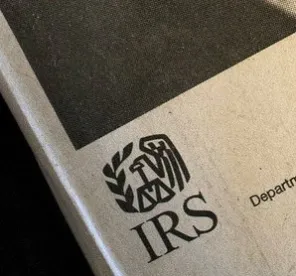While dusting off your 401(k) plan document and giving it a quick checkup, as discussed in one of our recent articles, what happens if you find that the plan’s operations do not match the plan document language? Under the IRS correction program, called the Employee Plans Compliance Resolution System (EPCRS), your legal counsel may present you with two options to correct these operational errors:
-
You can change your operations going forward to match the plan language and take whatever actions are necessary to fully correct the prior error, or
-
You can change the plan document to match your operations via a retroactive plan amendment (if the retroactive amendment otherwise complies with applicable law), such that the operational error is treated as never having occurred.
Under the prior version of EPCRS, the latter approach to correcting an operational error almost always required that you make a filing with the IRS to ask for its approval for that retroactive amendment (which is not guaranteed), and pay a fee for that filing. However, the IRS recently expanded the self-correction program (SCP) available under EPCRS (effective as of April 19, 2019) to allow for the correction of certain operational errors via a retroactive plan amendment without needing to contact the IRS or pay a fee, if certain conditions are satisfied. The new EPCRS can be found in IRS Revenue Procedure 2019-19.
Through expansion of the SCP, the IRS hopes to facilitate improved plan compliance by reducing the costs and burdens on plan sponsors of correcting these errors via the process of an EPCRS filing.
SCP Background
In order for any operational error to be eligible under the SCP, the plan must have established practices and procedures (which may be formal or informal) that are reasonably designed to promote overall compliance with the Internal Revenue Code. Also, if the operational error is “significant,” then the plan must be the subject of a favorable determination, opinion, or advisory letter, and the correction must be completed within two years after the year in which the failure occurred. An insignificant error, in contrast, can be corrected at any time, regardless of how long ago the error occurred. Note that “egregious” operational errors are not eligible for the SCP (for example, a plan that consistently and improperly covers only highly compensated employees).
SCP Expansion
Under the newly revised EPCRS, you can now correct operational errors via a retroactive plan amendment to conform the plan’s terms to its operations if, in addition to the requirements described above, all of the following are true:
-
The amendment uniformly increases participants’ benefits, rights, or features;
-
The increase applies to all employees that are eligible to participate in the plan; and
-
The increase is permitted under the Internal Revenue Code (i.e., it passes discrimination testing, etc.) and satisfies the general correction principles under the new EPCRS.
For example, assume that operationally, the plan permitted employees to take four hardship withdrawals per year, even though the plan document only allowed two per year. This type of operational error, because it is an “increase” to a right or feature and applied to all participants, could be self-corrected via a retroactive plan amendment. By correcting an operational error via a retroactive plan amendment, you can avoid having to take other corrective steps, and simply amend the plan to make it as if the plan language matched your plan operations.
If an operational error does not satisfy the conditions above, making the more plan sponsor-friendly option of correcting under the expanded SCP unavailable, it is still possible to potentially correct the error via a retroactive amendment. In that case, however, a filing with, and consent from, the IRS would be needed.
As always, you should consult with your advisors to effectively navigate your options under the new EPCRS, given the specific circumstances of your plan’s operational error(s), and consider the best approach for correcting your plan.




 />i
/>i
